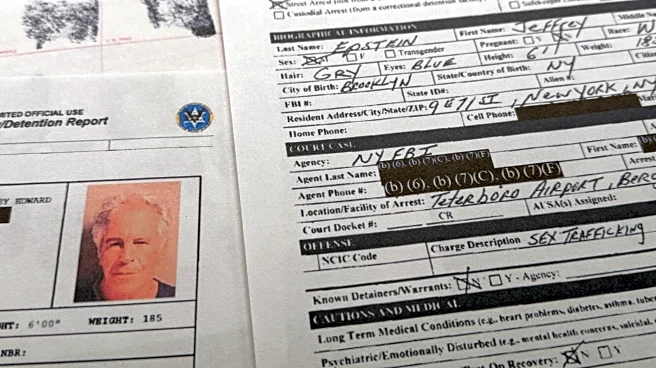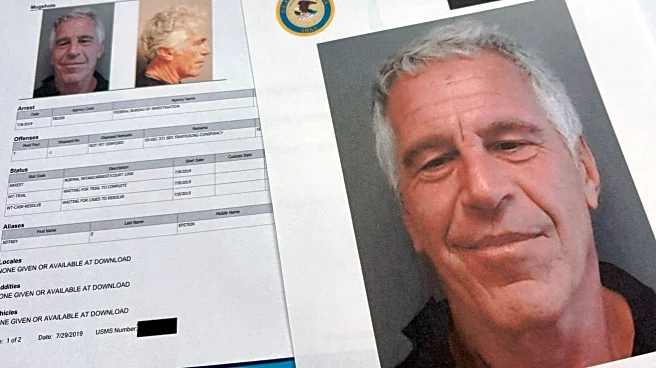What's Happening?
Mike Rotunda, a WWE Hall of Famer known for his wrestling persona as IRS, has been placed in hospice care. This development was revealed by his former tag team partner and brother-in-law, Barry Windham, during a discussion about Rotunda's late son, Windham Rotunda, who
was also a former WWE star known as Bray Wyatt. Rotunda, aged 67, is recognized for his significant contributions to wrestling, including forming the tag team The U.S. Express with Windham in the early 1980s, winning tag team championships twice. He later returned to WWE in 1991 as IRS, forming another successful tag team, Money Inc., with Ted DiBiase. Rotunda's career also included a stint in WCW as V.K. Wallstreet. The Rotunda family has faced tragedy before, with the death of Windham Rotunda from a heart attack at age 36.
Why It's Important?
The placement of Mike Rotunda in hospice care marks a significant moment for the wrestling community, highlighting the personal challenges faced by wrestling legends. Rotunda's career has left a lasting impact on the industry, with his character IRS becoming iconic in WWE history. His contributions to tag team wrestling, alongside figures like Ted DiBiase and Barry Windham, have shaped the dynamics of professional wrestling. The news also underscores the emotional and health challenges that retired athletes may face, drawing attention to the need for support systems for former sports professionals. The Rotunda family's recent tragedies, including the loss of Windham Rotunda, further emphasize the personal struggles behind the public personas of wrestling stars.
What's Next?
As Mike Rotunda receives hospice care, the wrestling community is likely to rally in support, offering prayers and well-wishes to the Rotunda family. Fans and fellow wrestlers may express their support through social media and other platforms, celebrating Rotunda's legacy and contributions to wrestling. The situation may also prompt discussions about the health and well-being of retired athletes, potentially leading to initiatives aimed at providing better support and care for former sports professionals. The Rotunda family's experiences may inspire broader conversations about the personal lives and challenges faced by wrestling legends.
Beyond the Headlines
The situation with Mike Rotunda highlights the often unseen personal struggles of wrestling icons, who, despite their public personas, face significant health and emotional challenges. This development may lead to increased awareness about the importance of mental and physical health support for retired athletes. The wrestling community's response could foster a culture of empathy and support, encouraging initiatives that address the long-term well-being of sports professionals. Additionally, the Rotunda family's experiences may serve as a poignant reminder of the human side of wrestling, prompting fans and industry stakeholders to consider the broader implications of fame and athletic careers.

















